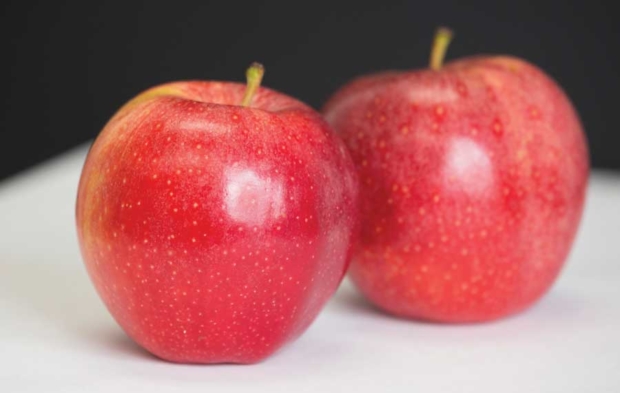
Grower Rob Wyles thinks he has a winner with the brilliant red apple he discovered in an orchard near Quincy, Washington, in 2007. (TJ Mullinax/Good Fruit Grower)
Central Washington in August can get so hot the air seems to quiver, so maybe grower Rob Wyles thought he saw a mirage.
For there in 2007, in an orchard above the Columbia River near Quincy, Washington, he saw an almost freakish thing amongst plantings of Fujis, Galas and Grannys.
It wasn’t the shape of the apples. It was the color, the fruit unusually red, especially for that time of year. The red apples looked like ornaments on a Christmas tree, he thought.
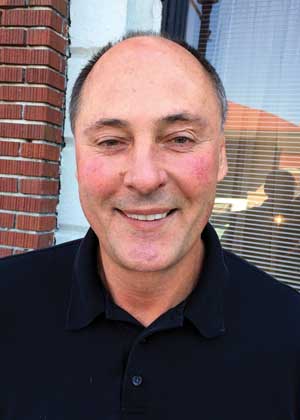
Rob Wyles
Wyles knew it was something unique so he marked the tree with tape and told people not to pick it or prune it.
He wanted to see what the tree would do. The excitement increased later when he tasted one of the apples.
It had a nice crunch, a sweet taste and was very juicy. Growers call that an apple that eats well.
The rest of us just say yum.
This is not a story about how an apple was discovered and went on to change an industry. If you want to read about one of those, follow the excitement around the rollout of the Cosmic Crisp apple elsewhere in this issue of Good Fruit Grower.
No, this story is about how a grower can think he’s got a great apple, but if the world doesn’t know about it and buy it, well … If an apple tree falls in the forest and there’s nobody around to hear it, does it make a sound?
Wyles knows the challenge. “It’s hard for somebody like me to get this started,” he said.
Wyles knows apples. In 1975, he graduated from Washington State University, and, with his twin brother, Ron, as partner, bought 27 acres in Tieton, Washington. They bought another farm in the Columbia Basin, then a third.
He kept expanding, and, in 1987, he and partners formed a company called Northwest Management and Realty Service to manage acreage owned by others. (He closed the management company in 2014 after a painful legal battle with Columbia Legal Services, but that’s another story.)
In Tieton, he and his wife, Michelle, own a building that they’ve donated to a food bank and an art gallery.
Back to Foxtrot. Wyles called it that because he liked to name his farms after an animal and “foxtrot” sounded catchy. Wyles took the mother tree and began to graft it to rootstocks, usually the Malling 9 but some on Malling 26.
To secure a patent, he hired a lawyer who documented the tree, the flowers, the seeds, the apple and all the particulars of what was called a whole-tree mutation of Tenroy Gala with “intense red fruit,” “fragrant, floral aroma” and “exceptional flavor.”
The patent application predicted a harvest of 35 tons per acre based on high-density planting of 1,100 trees per acre.
Foxtrot has some traction. Four nurseries are selling the trees, which are licensed through Foxtrot LLC.
About 250,000 trees are planted. Mike Argo, of Mike & Brians Nursery in Zillah, Washington, thinks the Foxtrot has a future as a branded apple. He declines to reveal how many trees he’s growing, but said, “The color is really awesome. … It’s a great eating apple.”
But consumers don’t know Foxtrot. You can walk into a store and find branded apples such as Pink Lady, Jazz, Lady Alice, Opal and others. Koru, a variety from New Zealand, is getting attention. But not Foxtrot, which arrives at stores in bags marked as Galas.
Without brand recognition, said Wyles, Foxtrot can’t go beyond its current appeal to farmers as just an apple that grows and packs well. He has bigger hopes.
Consumers want more great-tasting, high-end apples, he said. Today’s produce market is far from crowded by existing club varieties; there’s plenty of room for Foxtrot and other new apples.
“I just don’t have the wherewithal to market it as a club,” Wyles said. “The consumer needs this apple. It’s beautiful. It tastes really good. It would be good for the state of Washington to have this apple with the Washington sticker on it.”
Foxtrot needs a partner with muscle, a big marketing company to invest in a new brand and take all the steps to reach consumers as a great new thing. He figures $1 million will do it.
Sure, that’s a huge hurdle, but then Foxtrot has something that no other apple has: Rob Wyles. He’s an apple evangelist and, around him, it’s hard not to have faith. “I’ll bring you a box,” he said. “It’ll blow you away.” •
– by O. Casey Corr

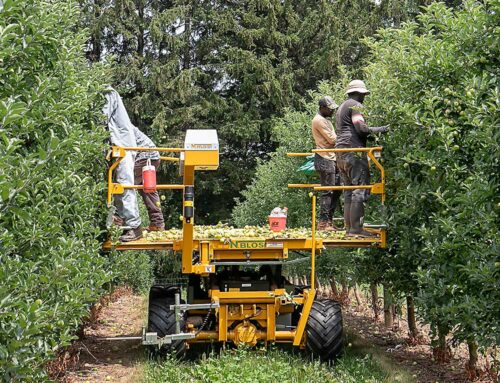

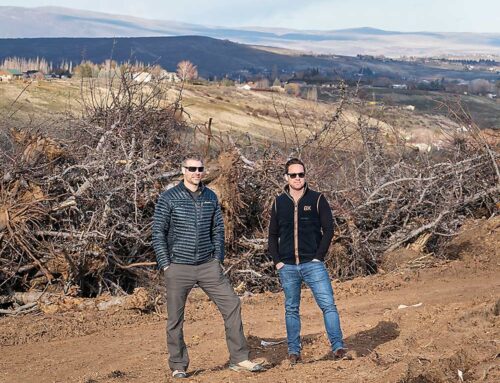

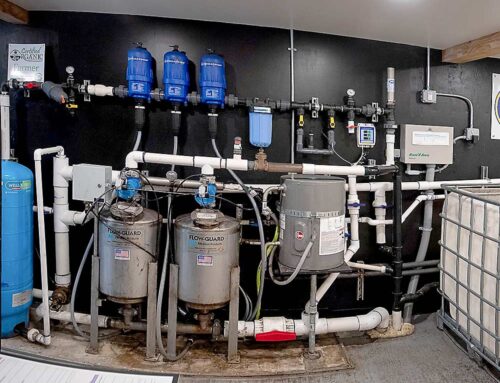
Would love to see growers interested in sharing scion wood from such amazing varieties. What better way to honor and protect an amazing evolutionary event than by spreading the love, rather than patenting.